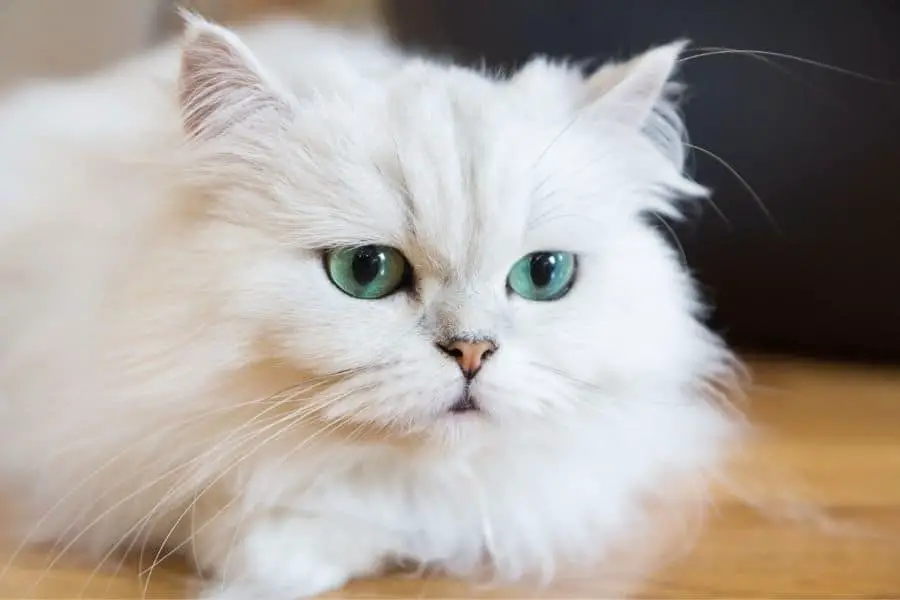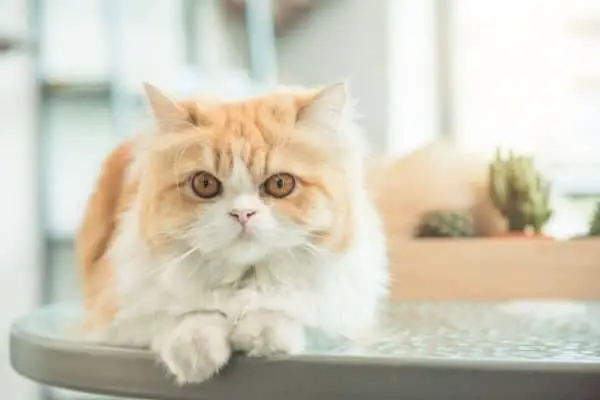More Meows is an Amazon Associate. As an Amazon Associate we earn from qualifying purchases. We may also earn commissions if you purchase products from other retailers after clicking on a link from our site.
Cats have a reputation of being independent creatures, to whom companionship is pleasant but not necessary, unlike their canine counterparts. Indeed, some cats are independent and can be left on their own for periods (although it is not smart or kind to leave a pet alone for long stretches), but others require a lot of attention. So, do Persian cats need company?
Persian cats need constant care, but they have independent personalities. They can be left alone without becoming lonely. However, Persian cats should not be left alone for long periods. Some Persian cats bond strongly with their owners and experience separation anxiety.
Persian cats’ breed care requirements mean that they are more dependent on their owners than certain other breeds of cats, even though they have independent personalities. Certain factors can make individual Persian cats more dependent on their owners for companionship.

Are Persian Cats Independent?
Yes, Persian cats are independent. When asking if Persian cats need company, the answer is not simple. Yes, they need companionship, but no, they aren’t likely to be distressed if their owners work all day.
Persian cats, like cat breeds such as the Ragdoll, are mostly bred to be companion cats. However, unlike Ragdoll cats, who are very dependent on their owners for companionship, Persians are relatively independent their personality requirements.
To read more about the relationship between a Persian cat and its owner, and if they miss their owners: Click Here.
The independent nature of Persian cats does not mean that they are not affectionate. Indeed, they are very happy to sit on their owner’s lap and be petted. But, you should never force your affection on your Persian; wait for them to come to you, and you will both enjoy the cuddling more.
Are Persian Cats High Maintenance?
Yes, Persian cats can be high maintenance cats. Persian cats’ maintenance requirements can influence how long or how often they can be left alone, more than their personalities do.
Persian cats need constant and consistent grooming, food control, and encouragement to exercise. They can also suffer from several health conditions.
Persian Cat Grooming Needs
Persian cats have long, thick, and silky coats that require daily brushing. They shed a lot of hair, which will cover your furniture, floors, and clothing if you do not brush them regularly. They are also prone to tangled hair, which can lead to matting without regular grooming.
To read more about whether a Persian cat has hair or fur: Click Here.
Another issue with their long coats is that they can get dirty bottoms when using their litter box. You will have to watch for this and clean it when it occurs. A dirty bottom can be distressing to cats who are, by nature, exceptionally clean animals.
Some people shave the bellies and back legs of their Persian cats to minimize the potential for litter tray-related issues. However, you should take them to a groomer for this trim instead of trying to do it at home.
Speaking of a Persian cat’s fur, check out our article on the 9 reasons for Persian cat hair loss: Click Here.
If you have a Persian cat or know someone with a Persian cat, you will have seen that they struggle with dirty faces. The prominence of their eyes means that they are less protected and more likely to water.
The flatness of Persian cats’ faces means poor tear drainage. These two factors result in a tendency for dark, goopy or crusty eye gunk to build up. To prevent this, you should wipe your Persian cat’s face and eyelids daily with a warm water-soaked cotton pad.
For a deeper dive into cleaning a Persian cat’s eyes, check out our article: Click Here.
Their flat faces also make eating a dirtier task for Persians than for other cats, so you should clean around their mouths each day as well.

Persian Cat Nutritional Requirements
Persian cats are prone to becoming overweight if their diet is not strictly controlled. If you are going away for a few days, you cannot just leave food out for your Persian cat. They will eat too much and too often.
Persian cats also need to drink water. To read more on this: Click Here.
If you work during the day, this is not an issue because you can feed them before and after work and keep the food away during the day. However, if you are going away for a few days, you should hire a pet-sitter or ask a family member or a friend to stay with your Persian cat.
Another issue with Persian cats is their predisposition to misaligned teeth. This can mean that they require soft, wet food that cannot be left out for long periods without going off.
Persian Cat Exercise
Persian cats are peaceful creatures, more likely to lounge around on the sofa than climb up onto counters and shelves or go tearing around the room. They can display bursts of energy, but you will need to make sure that your cat exercises each day sufficiently. This is important in controlling weight and promoting general health in a Persian cat.
You need to be careful what exercises and the amount of exercise you encourage your Persian cat to engage in because their flat faces can affect their respiration. Persian cats are also prone to heart conditions such as Hypertrophic Cardiomyopathy.
Persian Cats Dislike Change
Persians are docile and amiable cats, but they prefer calm environments, and they are averse to changes in their homes. If you get your Persian cat during your vacation from work and then suddenly start going back into the office, your cat can display signs of distress at this change.
One way that a Persian cat may show stress is by vomiting. Check out our article on why a Persian cat may be vomiting: Check Here.
Persian cats are not necessarily lonely; although this can be a factor, they are upset at the loss of a predictable and constant companion. Persian cats can become accustomed to new routines of more lively home environments if they receive adequate reassurance and attention.
Persian Cats Separation Anxiety
Persian cats are affectionate, and some can develop very strong bonds with one person, becoming distressed, destructive, vocal, and even aggressive when that person is not around. Proper socialization as a kitten, routine, exercise, and toys can assist with cats who have a tendency towards separation anxiety.
Stress can be a reasons that Persian cats excessively shed. To learn more about why a Persian cat may be excessively shedding check out my article: Click Here.
Pet Sitter Or Companion Cat?
In the case of a Persian cat, a pet sitter is probably the best option for when you will be away for a longer period. A companion cat cannot provide your Persian with the maintenance they require, and your Persian’s need for companionship is not high.
A pet sitter will minimize the changes in routine and environment by staying in your home and feeding and grooming your cat according to your provided instructions. Pet sitters will be there to control the amount of food your cat eats, groom them daily, and encourage them to exercise.
If you can get the same pet sitter every time, this will also assist in minimizing your Persian’s distress to your absence.
Conclusion
Persian cats are independent in personality but dependent on care requirements. They can be left alone for a day, but their grooming, nutritional, and exercise requirements mean that they cannot be left alone for a few days at a time.
The long coat of a Persian cat is prone to shedding and tangling, so it needs to be brushed daily. Their flat faces also need to be cleaned as they are prone to getting tear-based eye gunk. Persian cats can easily become overweight, and so their diet requires strict control; you can’t just leave multiple meals worth of food out. They also require encouragement to exercise.
Even though they are independent, Persian cats bond with their owners, usually one person in particular, and can be upset when separated from this person by long or frequent absences. Some even develop separation anxiety.
Persian cats are upset by changes in routine. So, if their owner suddenly changes their routine and starts going out for long periods, it can upset a Persian cat. If you will be away from home for long or frequent periods of time, a pet sitter is a better option than another cat.
The pet sitter will need to groom, feed, and exercise your Persian, but use the same sitter as far as possible to minimize change.
If you enjoyed this article, please check out a couple of other Persian cat articles:
- Persian Cat Growth Explained: Click Here.
- Persian Cat Mating Guide: Click Here.
